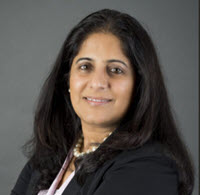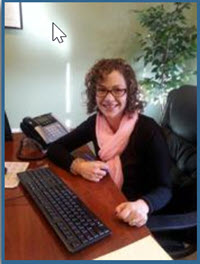Key answers for elder orphans
We have been talking about professionals who will help Elder Orphans take and keep control of their lives. Last week we focused on Aging Life Care Specialists and Daily Money Managers. This week we are shining the spotlight on two more members of your support team.
Elder Law Attorney
Rekha Rao, Rao Legal Group, LLC
Why is estate planning important if you don’t have a spouse or children?
Most people think estate planning is something only wealthy individuals with large “estates” need to be concerned about. Or, they think it’s for families with minor children so guardians can be appointed in the event something unexpected happens to both parents. These are a few of the common misconceptions people have about estate planning that can catch individuals off guard when the unexpected happens. You want to ensure the assets pass to those whom want them to go to rather than have the state decide how (and to whom) they should go.
Even if you are not too concerned about what happens to your assets after you are gone, you must at least be concerned about incapacity and whether you have the proper documents in place to ensure that someone is appointed to speak on your behalf should you become incapacitated. This is especially true when you are an Elder Orphan since there is no spouse, child(ren), or parent who can step in to help.
What are the legal documents you feel must be in place for protection and why are they important?
Every good estate planner would recommend a Will or Revocable Trust be accompanied by (a) a General Durable Power of Attorney (“GDPOA” for finances) and (b) an Advance HealthCare Directive. Our firm goes one step further and provides families with an Asset Integration Worksheet (AIW) which lists all assets a family has in one place and what our recommendations are in terms of titling (or retitling) assets or changes in beneficiary designations. This way, the AIW serves not only as a to-do list for each family but also as a place where the Executor of the estate can go to ensure all assets in the estate are accounted for and go to the ultimate heirs. Our office also provides Healthcare Powers of Attorney (and sometimes a General Durable Power of Attorney) for all unmarried adult children which is generally included in the package fee.
The General Durable Power of Attorney is such a key document. Who can an Elder Orphan name if they don’t have family to fulfill this role?
One frustration that Elder Orphans face is whom to appoint as an Agent on a POA, since not many corporate institutions/trustees agree to serve as agents on POAs due to liability concerns. In this case, it may be best to appoint smaller outfits like a small CPA firm or Money Manager who may already be serving as a fiduciary and may be well-versed in handling money for other individuals. Naming a trusted friend or even a corporate fiduciary allows you to be taken care of and funds be spent on your care instead of getting wasted on lengthy legal proceedings.
A GDPOA is critically important to any individual because it is a simple replacement for a lengthy, expensive, and at times, emotionally charged court process to establish a guardianship. It basically allows an individual to authorize someone to take charge of finances should incapacity set in. Once this is executed and the need to use this is triggered, the fiduciaries named on the GDPOA can effectively stand in the shoes of the incapacitated person to manage their finances on their behalf. While this puts a lot of power in the hands of the holder of the POA, it also eliminates hassles and headaches which is important during difficult times.
Do you have any additional advice for Elder Orphans?
For wealthier Elder Orphans, one other challenge they must consider is the New Jersey Inheritance Tax as their beneficiaries are all non-Class A beneficiaries. They would then need to give a closer look at their beneficiaries because this tax is based on a beneficiary’s relationship to the decedent. Revocable Living Trusts, while not avoiding the taxes owed, may provide some relief to beneficiaries who can stand to inherit assets without court intervention and court-related delays. Of course, charitable bequests and life insurance may play an important role in this type of planning if minimizing taxes is the objective.
Guardianship Attorney
Nina Weiss, Weiss Law, LLC
How does the work of a guardianship attorney differ from an estate planning and elder law attorney?
My area of specialty focuses more on what happens if, for one reason or another, the previously established plan does not work or alternatively, what options are available for surrogate decision making when a person has failed to plan.
Can people plan for diminished capacity and, if so, what does that planning look like?
Yes, absolutely. When an individual maintains capacity, they are certainly able to plan for both their financial and medical decision making. They should ensure they have a General Power of Attorney and Living Will/Advance Directive for Healthcare. They should designate decision makers in these documents whom they trust and ideally share their value system.
The least restrictive form of surrogate decision making is a designated representative making decisions pursuant to the terms of these documents. This is because the individual designated the decision maker in a VOLUNTARY fashion while they maintained capacity.
What does ‘guardianship’ mean and how does that differ from a limited guardianship or conservatorship?
If an individual has not signed a Power of Attorney or Living Will or if they have, but these documents are insufficient/not working and a person loses capacity, then it will be necessary to invoke the court for assistance through the guardianship process. By definition, this is a more restrictive approach to surrogate decision making since it is a court-imposed INVOLUNTARY arrangement. The court will determine whether the individual is presently “unfit and unable to manage his or her own affairs” and if the court so determines, it will appoint a guardian to make decisions for the individual.
The courts do recognize the lesser restrictive approach of LIMITED GUARDIANSHIP. Since capacity is not necessarily an all or nothing proposition (i.e. a person may lack capacity in some areas of decision making but maintain capacity in other areas), the courts have also recognized that guardianship is not necessarily an all or nothing proposition. It may be that an individual requires assistance with managing finances and investments but this same individual maintains capacity to make an informed consent for medical procedures. Or, an individual may lack the capacity to weigh the risks and benefits of medical procedures but may maintain the capacity to decide where to be employed and how they wish to work and pursue vocational opportunities (this is often seen in individuals living with developmental disabilities). The court has recognized this broad spectrum of capacity and permits the establishment of a limited guardianship where the individual can maintain capacity in certain areas while, at the same time, have a “limited” guardian appointed to make only certain decisions. This often strikes the proper balance between protecting a person and ensuring their best interests while also affording autonomy and individual rights.
A conservatorship is an often-underutilized tool in the area of surrogate decision making and it is quite unique. Although a conservatorship is a court-sanctioned arrangement, unlike guardianship, it is a VOLUNTARY arrangement in the sense that the individual must consent to the appointment of a conservator. A conservatorship is limited to financial issues. It is an effective tool where an individual maintains capacity, but a Power of Attorney may afford insufficient protection due perhaps to the individual’s susceptibility to undue influence. Unlike a Power of Attorney arrangement, a court-appointed conservator must account to the court, which also adds a layer of protection for the individual.
How does your work intersect with an Aging Life Care Specialist™?
An attorney and legal tools are only a few elements of that overall plan of care. My work often intersects with the work of an Aging Life Care Specialist. As I often advise clients, I can assist them with acquiring the legal tools they need. However, they may require assistance with arriving at an overall plan of care for the individual.
An Aging Life Care Specialist can round out the plan. Further, I often refer clients to an Aging Life Care Specialist first, before they decide to proceed to guardianship, in an effort to initially explore whether less restrictive alternatives to guardianship may be available. An Aging Life Care Specialist will be able to complete a baseline assessment of capacity and further determine whether an individual is able to make any decisions and whether they will accept assistance.
It is helpful to take this team approach in assisting clients. Ultimately, a team approach will assist our clients in making decisions and plans for their loved ones. And ultimately, if court intervention is necessary, a judge will be pleased to see that less restrictive alternatives were explored and that a multi-disciplinary approach has been taken in an effort to assist the individual.
Contributor acknowledgments:
With thanks to my collaboration partners Rakha Rao.

And Nina Wiess.

Disclaimer: The material in this blog is for educational purposes only. It is not intended to replace, nor does it replace, consulting with a physician, lawyer, accountant, financial planner or other qualified professional.

